My Teaching Scholar Philosophy
I am a first-generation college graduate from a lower-middle class family in rural America. Most of my upbringing was surrounded by a culture of factory workers and farmers who did not venture far from this reality. I have a great deal of respect for this culture and upbringing. I credit my childhood experience with defining my path as an educator. For the last 12 years, I have worked at a public institution not far from where I grew up. It is an institution where students with a similar upbringing to my own often find themselves. This is similar to the university from which I received my initial higher-educational experience that inspired me to break through the legacy of family and community. I was taught by inspiring faculty to believe that I could become something beyond the traditional mold and that has ultimately led to me to what I am today – a university professor and scientist. In past 12 years as a professor at Minnesota State, I have endeavored to “pay back” those that inspired me by having a similar impact on my students - to hopefully inspire them to remove cultural or conceptual limitations they have placed on themselves and to believe that they can accomplish remarkable things. My experience, thus far, has showed that this is exactly what has happened in the last 12 years - time and time again.I have now taught and (hopefully) made a difference in the lives of ~5000 students, in both general education/intro-level and upper-division courses. In addition, I have directly advised and mentored >80 geoscience-focused students and served as director/coordinator for two undergraduate programs (Earth Science B.S., Earth Science Teaching B.S.) and our graduate program (Geography M.S.). Through this experience, I have developed a pedagogical philosophy that fully intertwines my teaching, advising, mentorship, and research - the philosophy of the Teaching Scholar. As a Teaching Scholar, I actively integrate my teaching, advising, mentorship, and research so that they are essentially one in the same in scale, scope, and purpose. In the classroom, students are very often infused into real research projects as part of their pedagogical experience. I have found that active involvement in research instills a sense of belonging and confidence in students - they feel they are doing something relevant while they learn and can tangibly grasp the importance of the material they are taught. Tying together the classroom and research keeps me current as a scientist. This, then, results in the students being directly trained in state-of-the-science methodologies through hands-on, applied, and experiential learning opportunities that reinforce conceptual and theoretical knowledge obtained in the traditional lecture-based classroom. Classroom projects often result in conference presentations and/or publications that engage students in the process of disseminating results, as well. For example, a recent field seminar course resulted in an article published by a combination of former grad/undergrad students in Geomorphology
(see: https://www.sciencedirect.com/science/article/abs/pii/S0169555X19305112). Many more examples can be seen on my C.V.
In addition, this approach is reinforced by my strong advocacy and belief in the power of “the field,” as a learner-centered and experiential learning approach to engaging students. A field-focused approach is suggested to aid in increasing involvement and belonging in the geosciences. Thus, I have pursued increasing the involvement and sense of belonging of all students from all backgrounds vigorously by incorporating field-based approaches in every course I teach in. Recent pedagogical research (Jones and Washko, 2021, p.1) has reinforced this strategy by stating:
“The strength of field activities lies in (1) the integration of active learning, (2) the co- creation of knowledge through collaborative, problem-based activities, (3) place-based learning that provides real-world context, and (4) rapid feedback between peers and instructors. These strategies are well-represented in scholarship on teaching and learning, and further, strategies implemented in field learning may help to reduce the achievement gap for underrepresented groups.”
My continued objective as an educator is to provide the kind of high-impact, experiential learning experience that can allow a wide-array of students, from varied cultural, ethnic, and societal backgrounds, to feel engaged and included within the classroom and within the geosciences. Underlying the integrated Teaching Scholar philosophy, and key to my teaching philosophy, are two main principles I uphold as mainstays of my classroom – learner-centered adaptive strategies and experiential learning.
Learner-centered adaptive strategies: In teaching, the first concept that I try to establish is that of a learner-centered approach to education; one that creates an appropriate framework to connect with individual students and recognizes a variety of backgrounds and learning styles. This is often difficult in the large, introductory sections that have hundreds of students. It is something I strive for, nonetheless. I do this by encouraging classroom interaction in a variety of ways, providing variable pedagogical methods in a single class to reach different styles of learners, and through offering a variety of methods of learner support.
It is my belief that focus must be paid to each student and his or her specific learning needs so that a true “connection” can be made. This is often challenging and includes directing learning to varied student backgrounds and learning styles. One strategy I have implemented is utilizing a variety of assignments focused on different learning styles so that I can appropriately assess each student. All of my courses contain some combination of quizzes, written assessments, student-led discussions, critical thought exercises, field-based experiences, laboratories, and participation-inducing activities. Particularly in upper-division courses, I ask the students at the beginning of the term what they prefer and then structure the course towards their learning styles. We all learn differently and, therefore, having a single or even just two assessment style(s) may serve to disadvantage some students. Of course, I am not perfect and cannot foresee everything, so listening to the comments and reflections of each student is key to being a great educator and building the appropriate courses that will reach the entirety of the student body efficiently and effectively. I take my evaluations very seriously. Also, I often utilize surveys I create about specific parts of my courses to gather more feedback. Similarly, in mentorship, I try to understand the objectives, learning style, and passion of each student I advise and develop individualized pathways through curriculum and extracurricular opportunities to achieve their educational goals.
Given this interwoven philosophy of teaching, mentorship, and research, one pedagogical innovation I championed was the development of the “Preceptor Program” at both Arizona State and Minnesota State during my time at those institutions. This program provides peer mentors, usually seniors in geoscience, in intro geoscience courses who can interact with individual students to provide them with encouragement, tutoring, and (most importantly) “a peer” that enables the student to engage content and potential interest in the subject without being anxious or intimidated by a professor. These Preceptors, in turn, often find interacting with students rewarding and engaging. I mentor the Preceptors in their position and they, in turn, mentor our students – thereby creating a mentorship circle that engages the entire student body in our courses and our majors as well. The result of this has been ~80% of my former Preceptors going on to graduate programs in the geosciences and increased grade averages post-Preceptor program integration with my introductory courses.
Experiential Learning: The second principle that I incorporate into each of my classes, and in mentorship, is the idea of experiential learning, as summarized by Kolb and Fry in 1975. This idea follows their classic “learning circle” that can begin at any one of four concrete stages — 1) experience, 2) observation and experience, 3) forming of abstract concepts and 4) experimentation/testing. I have seen incredible power in my teaching when students interact - observe – critically think - apply. In a very real way, my instructional approach adapts the experiential learning view of Kolb and Fry (1975) and the later additions of Jarvis (1987) through “field” experience and hands on application of concepts, while creating active involvement in the academic research process. Thus, they begin and complete the “learning circle.”
As mentioned, “field” experiences are critical to my teaching and are fundamental to my experiential learning philosophy. Recent literature has reinforced what years of my teaching in-the-field experiences have led me to believe - that field work is a critical pedagogical strategy in the geosciences (Jones and Washko, 2021). When it is not possible to bring students to the field, applying the four attributes of field trip pedagogy (Jones and Washko, 2021) to classroom and virtual classroom activities, like virtual field trips, can improve teaching and learning. I aim to re-create as many of these attributes as possible to design courses that are as impactful as those involving traditional field trips. Therefore, every class I teach has either a physical, in-person field component or, alternatively, a virtual field component that allows students to conduct experiential learning through field work by applying theory learned in the classroom to real scientific questions regarding environmental issues and processes that shape our planet’s surface.
Of importance and given the recent crisis with the Covid-19 pandemic, this pedagogical philosophy outlined here is not isolated to the physical classroom. It is also something I strongly advocate for and pursue in online education. In fact, I would say I am quite passionate about this endeavor. When I was hired at Minnesota State in 2013, I was asked to advance the online curriculum in Earth Science and Geography to the 21st century. As a result, infusing and implementing this pedagogical approach into online curriculum has been a primary component of my career and the Covid-19 higher-education panic to transition to online learning reinforced this.
I want to emphasize that I believe very, very strongly that this Teaching Scholar philosophy and the learner-centered, experiential learning approach it provides is an incredibly impactful and effective learning strategy for geo- and environmental science-focused students. The success of my students to date, while in the program and post-graduation, reinforces this opinion. Many of my students have successfully found employment in environmental science, geoscience, geospatial consulting, engineering firms, government agencies, or have gone on to pursue M.S. or Ph.D. programs in the geosciences.
References:
Jarvis, P. "Meaningful and meaningless experience: Towards an analysis of learning from life." Adult education quarterly 37.3 (1987): 164-172.
Jones, J. C., and Washko, S. "More than fun in the sun: The pedagogy of field trips improves student learning in higher education." Journal of Geoscience Education 70.3 (2022): 292-305.
Kolb, D. & Fry, R. (1975). "Toward an applied theory of experiential learning." in C. Cooper (Ed.), Theories of Group Process. London, UK: John Wiley.
Current Courses Designed and/or Taught:
Geog101 - Introduction to
Physical Geography (GE-3; GE-10 @ MNSU) (online and
in-person)
Geog313 - Natural Disasters (GE-2 @ MNSU)
Geog315 - Geomorphology
Geog409/509 - Water Resources
Geog440/540 - Field Methods
Geog440 - Physical and Cultural Landscapes of Hawai'i
(study away field course on Hawai'i Island)
Geog416W/516 - Fluvial Geomorphology and Hydrology (Writing Intensive)
Geog417/517 - Quaternary Environments and Climate Change
Geog500 - Geomorphology & Earth Surface Processes
Geog610 – Advanced Geomorphology and Geoarcheology/Desert Geomorphology/Arid Environments
Geog610 – Issues in Physical Geography
Geog677 – Advanced Fluvial Geomorphology/Sediment Transport
Examples of My Teaching and Mentorship in Photos:
Experiential, Field-Based, Geoscience Education!
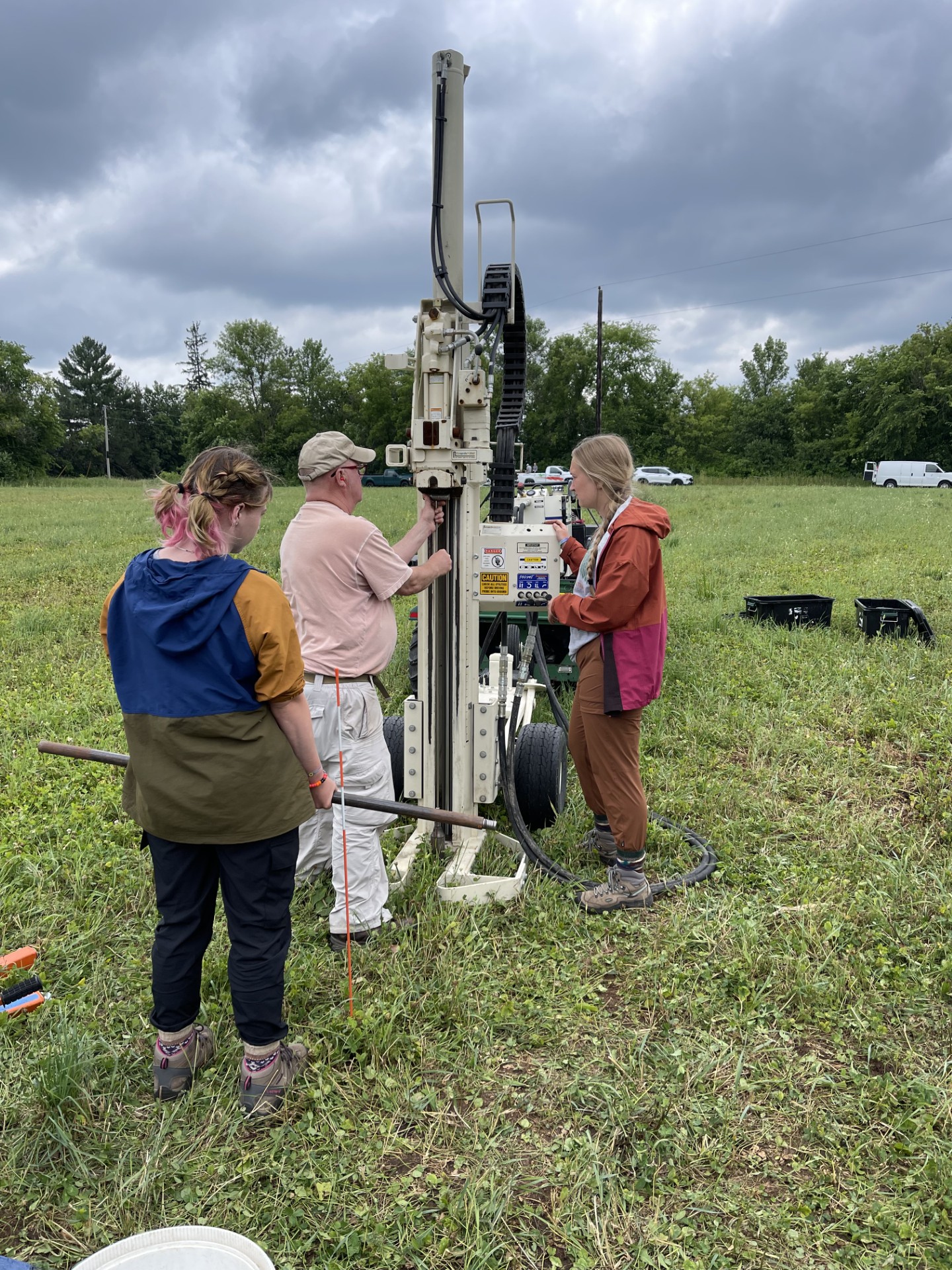
Students and colleagues operating the geoprobe!
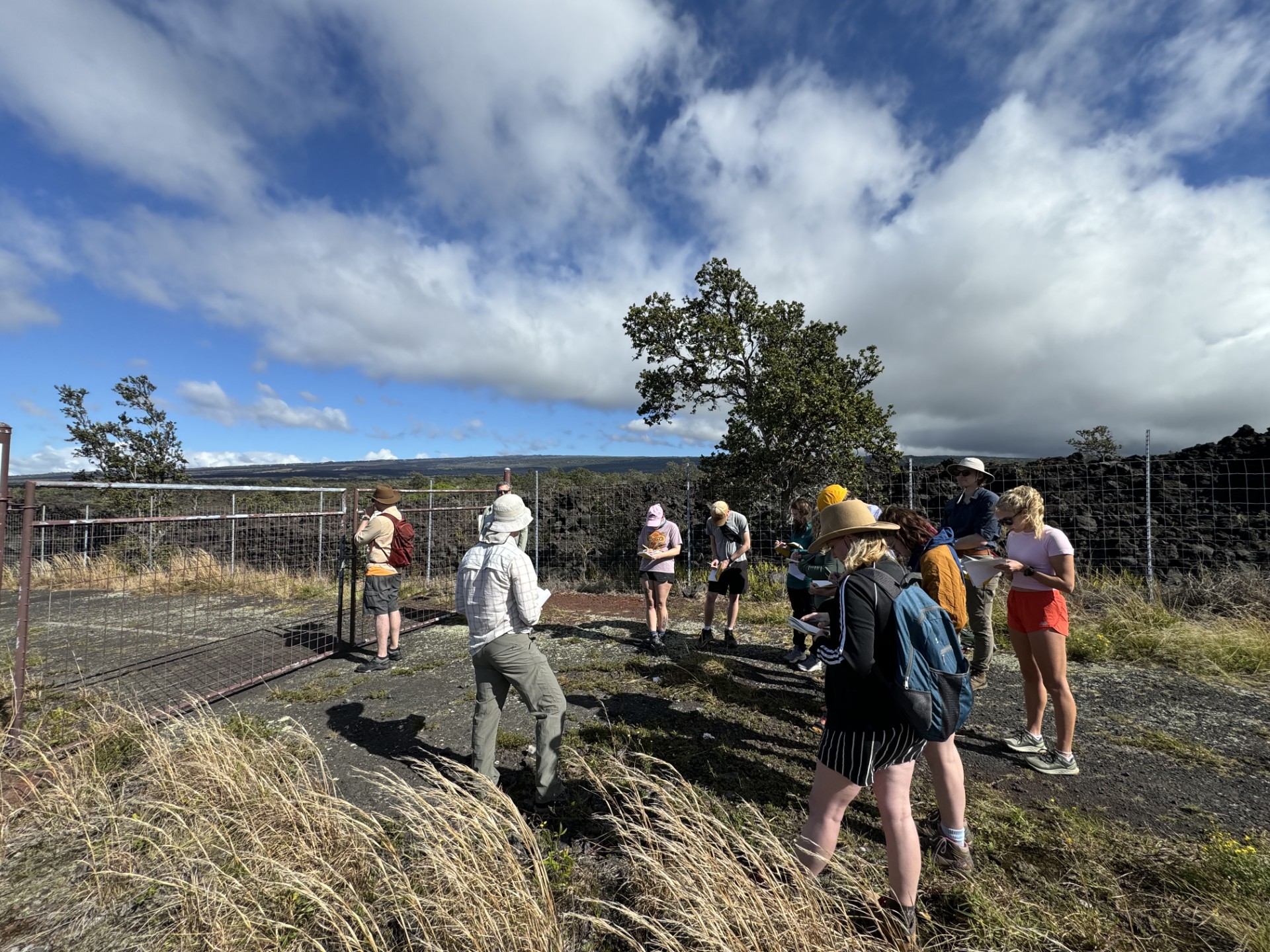
Students studying lava flow hazards on Hawai'i
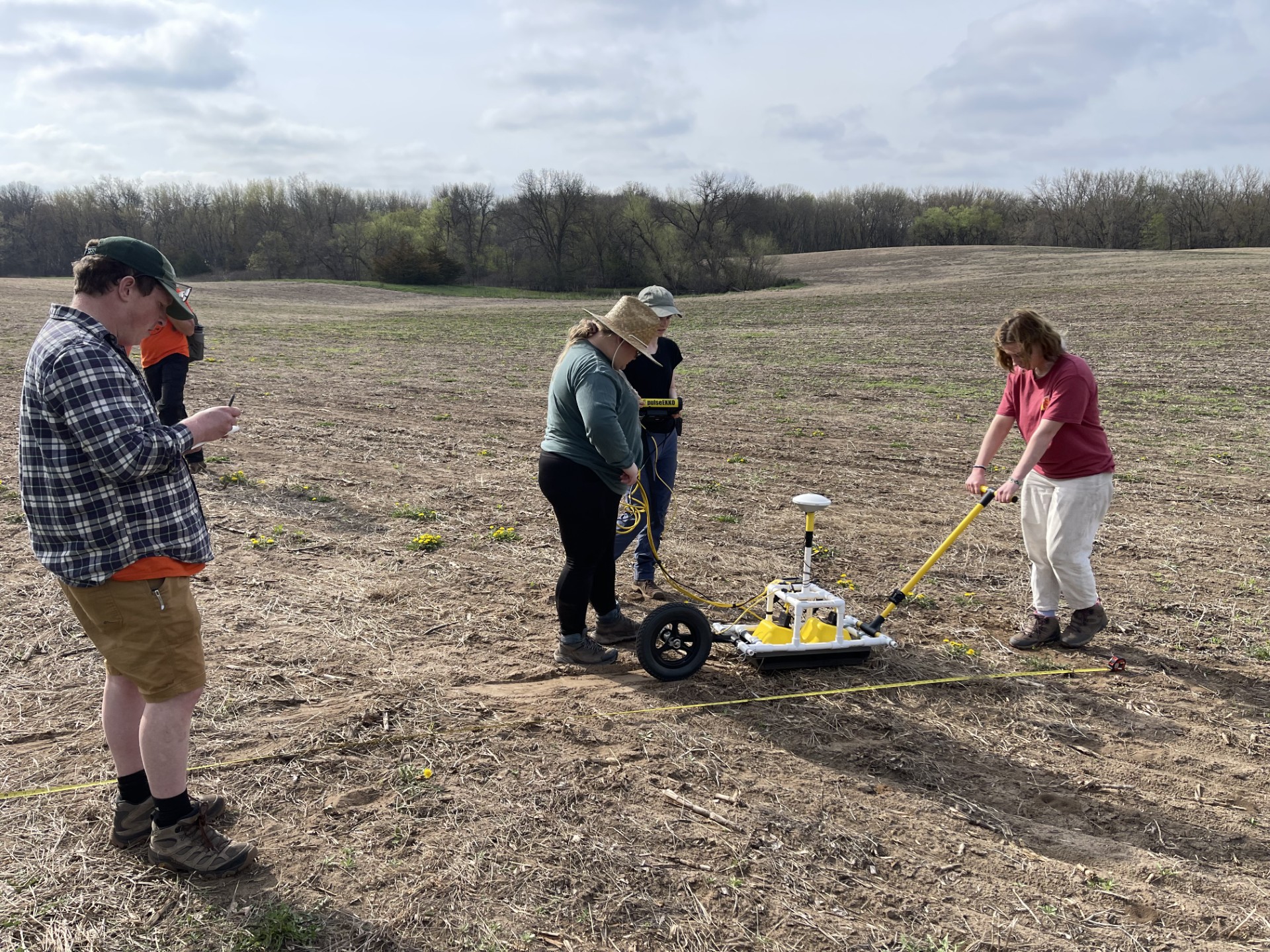
Students running a ground penetrating radar survey using a Pulse Ekko unit with 500 Mhz antennae and odometer
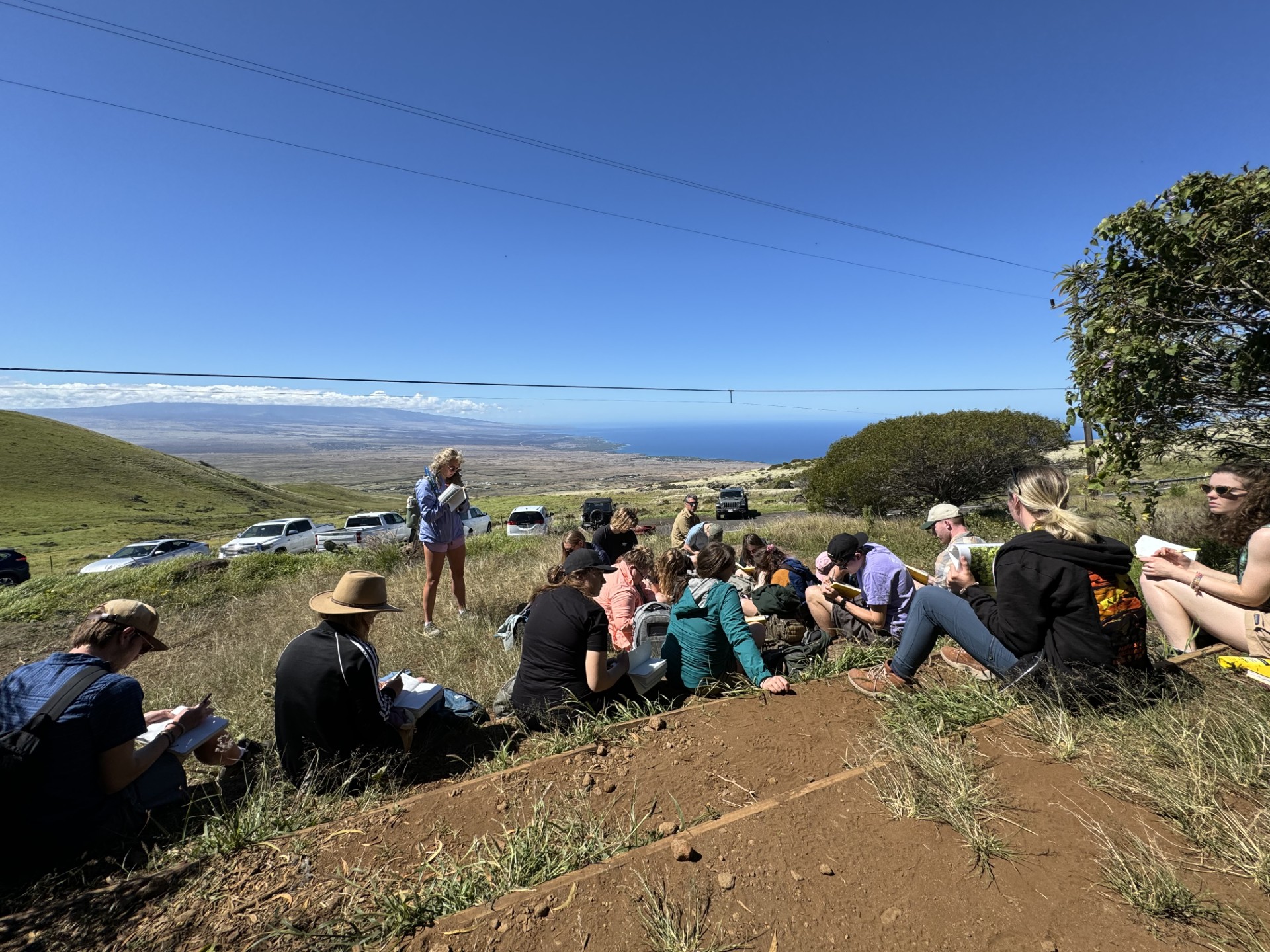
Students studying the biogeography of Hawai'i Island on the slope of Kohala Volcano!
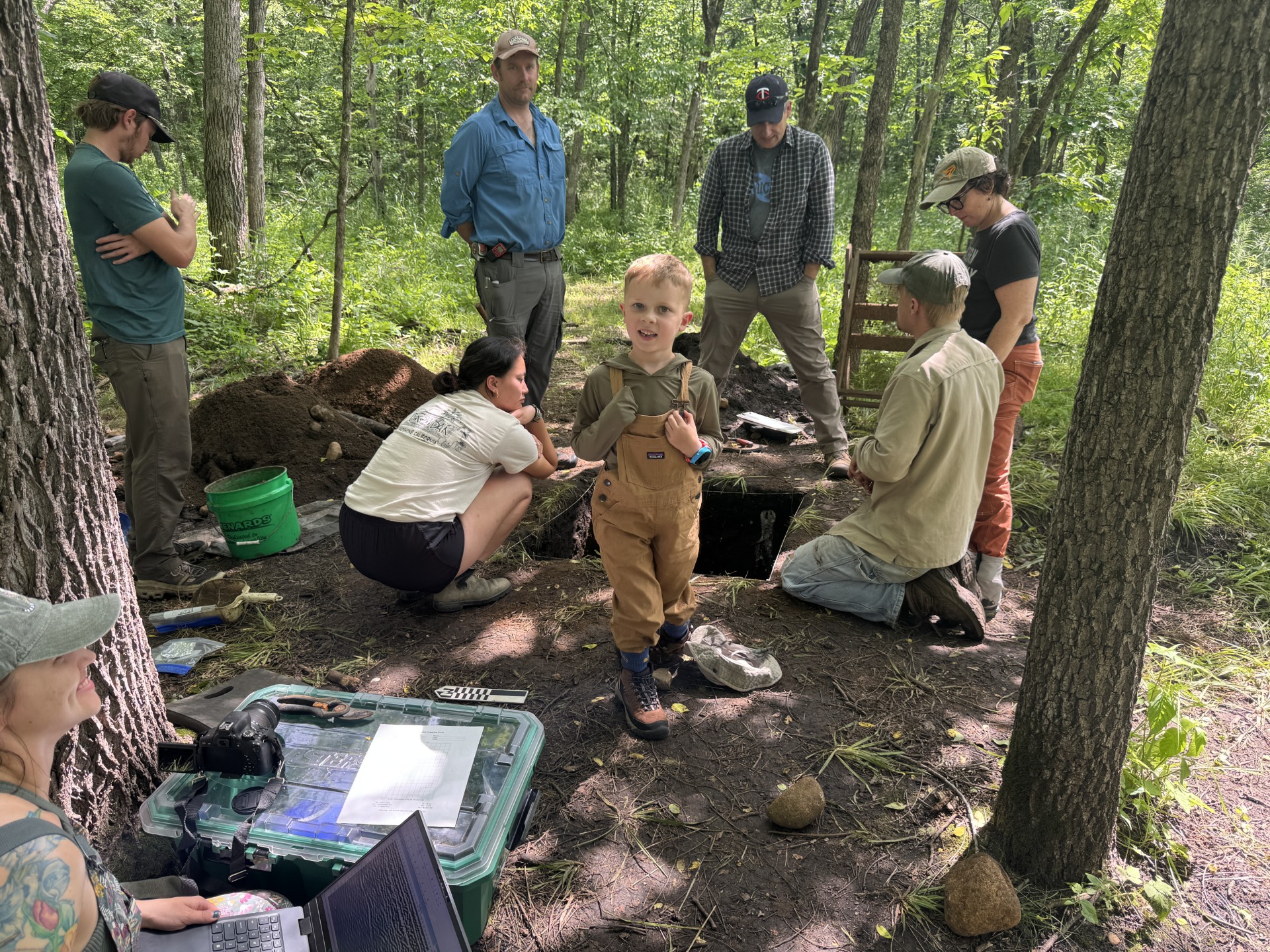
Students, colleagues, and Logan Larson investigating soils at an archeological site in Minnesota
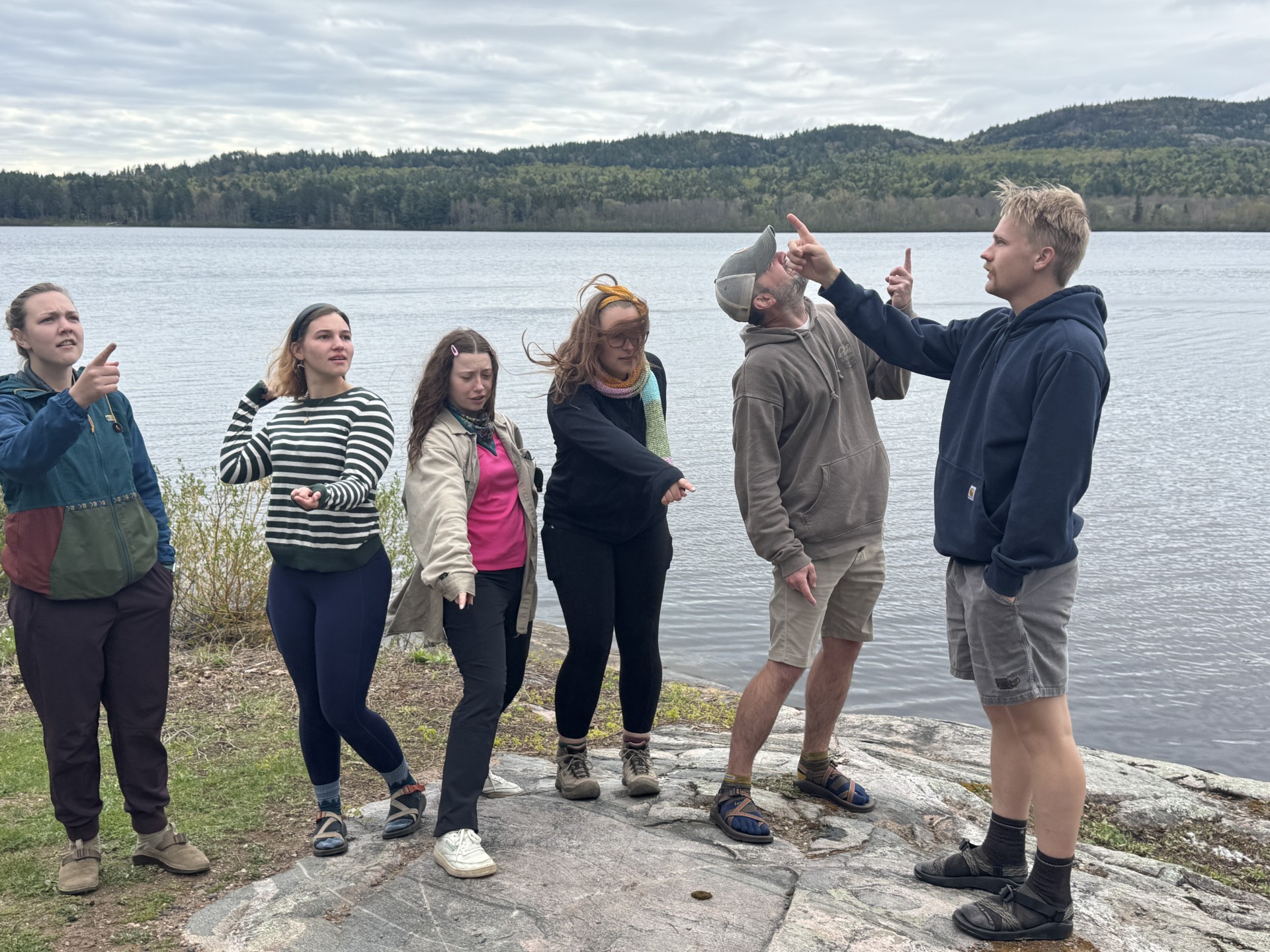
Students after field work in the Huron Mountains, Michigan. Students were part of the NSF FRES: Lake Superior project and studying glacial lake outburst flood processes
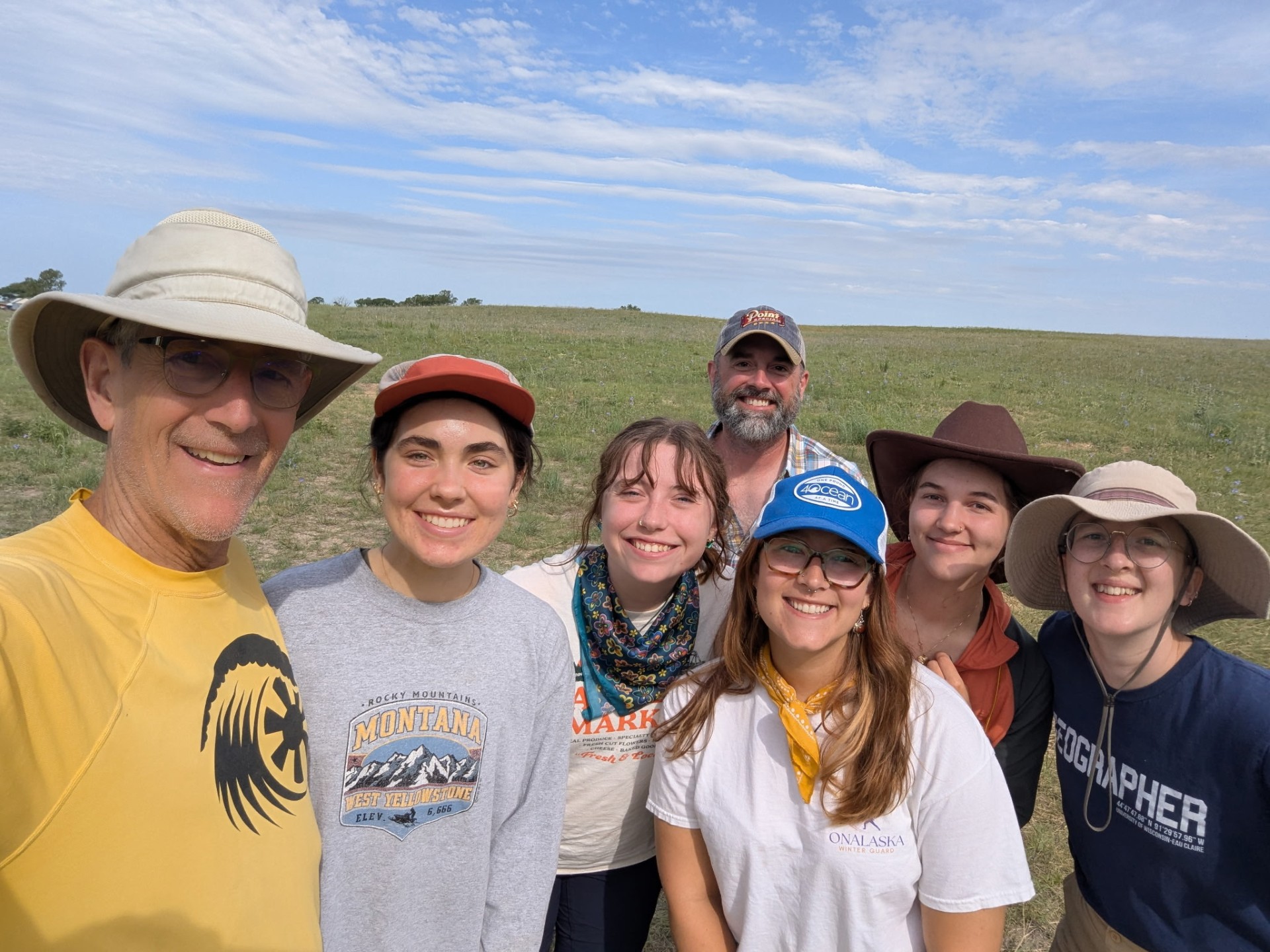
UW-Eau Claire students and faculty along with MNSU students and me after field work in the Nebraska Sand Hills
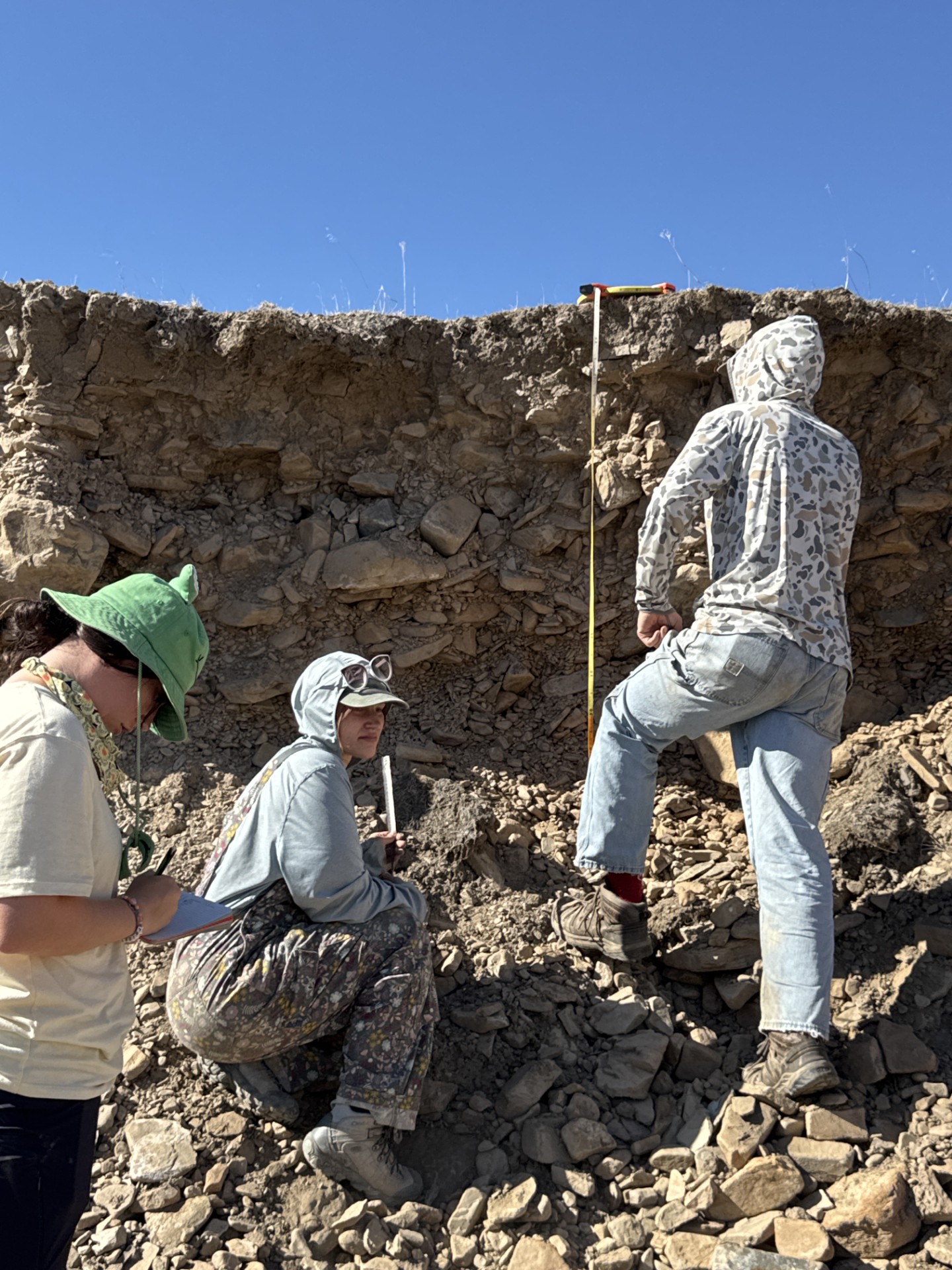
Students investigating the sediments within landforms created by glacial lake outburst floods in western Montana
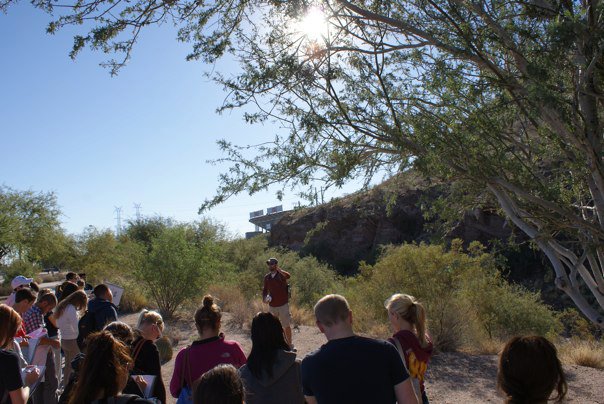
Students studying the slope processes at Tempe Butte, in Tempe, Arizona
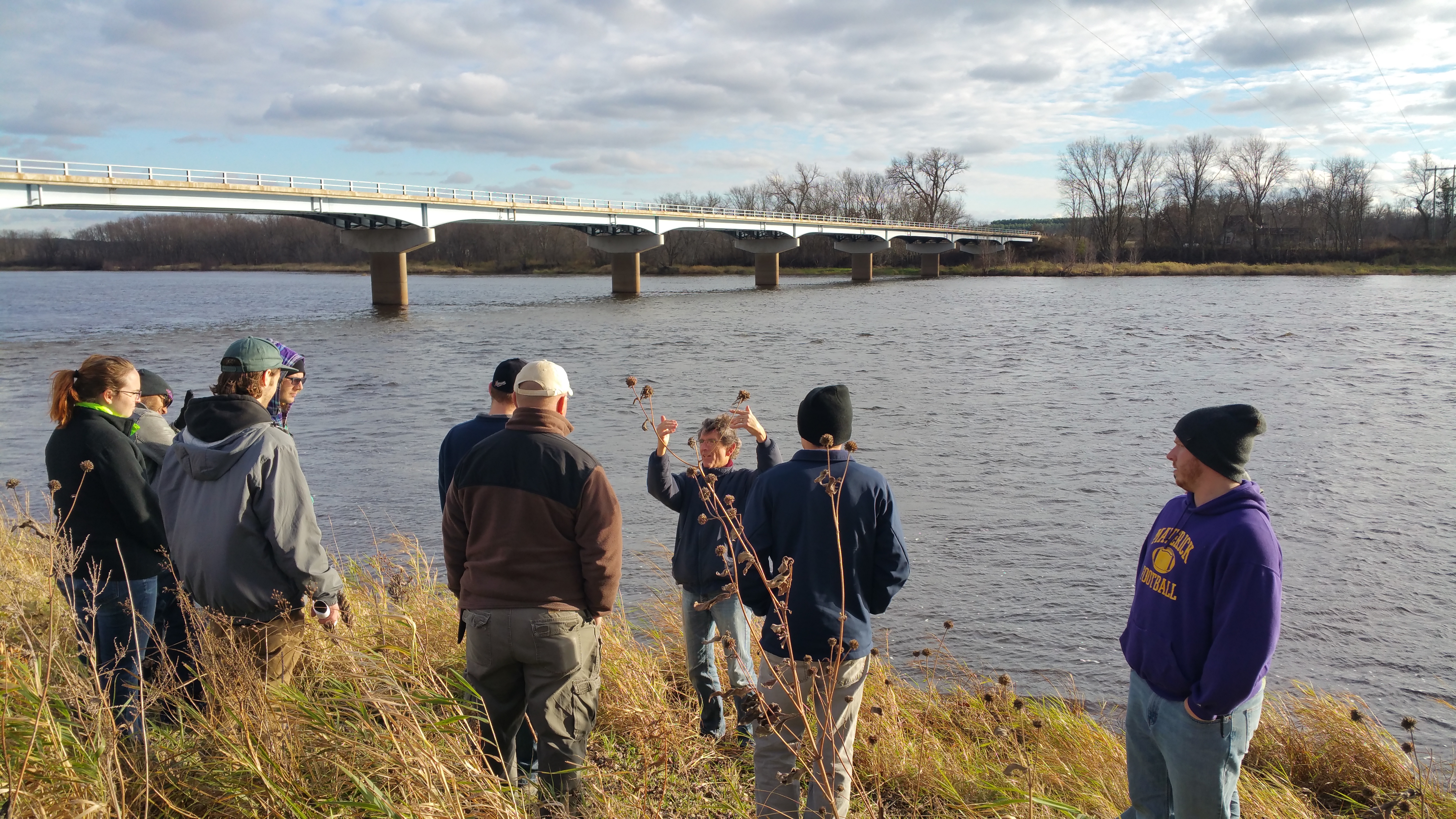
Colleagues and I discussing invasive species and fluvial processes along the Chippewa River, Wisconsin

Students learning from me about rock fall hazards in Yosemite Valley, Yosemite National Park, California
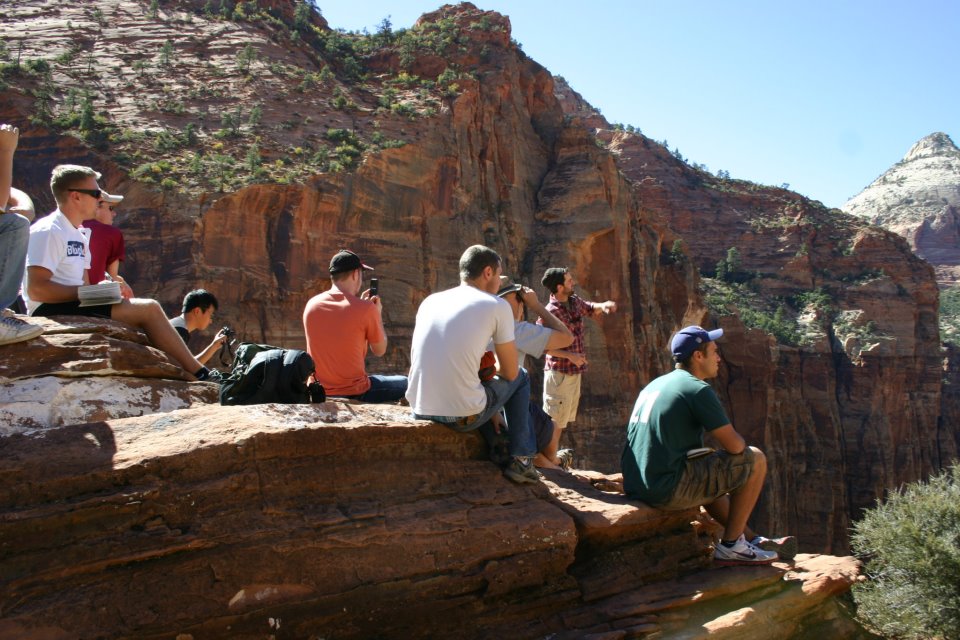
Students learning about the formation of Zion Canyon and the role rock fall hazards played in its formation, Zion National Park, Utah
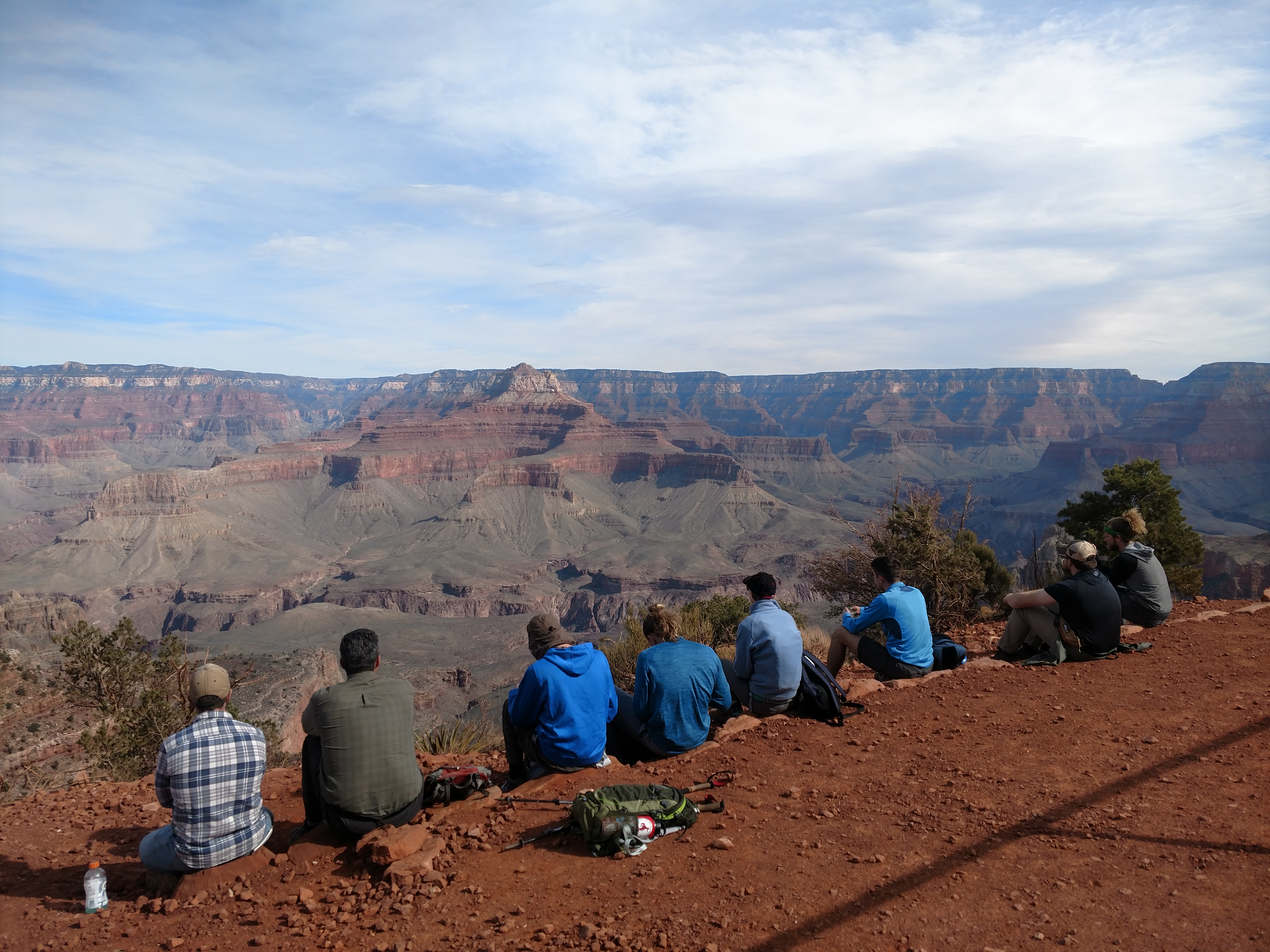
Students taking a breather at Grand Canyon National Park
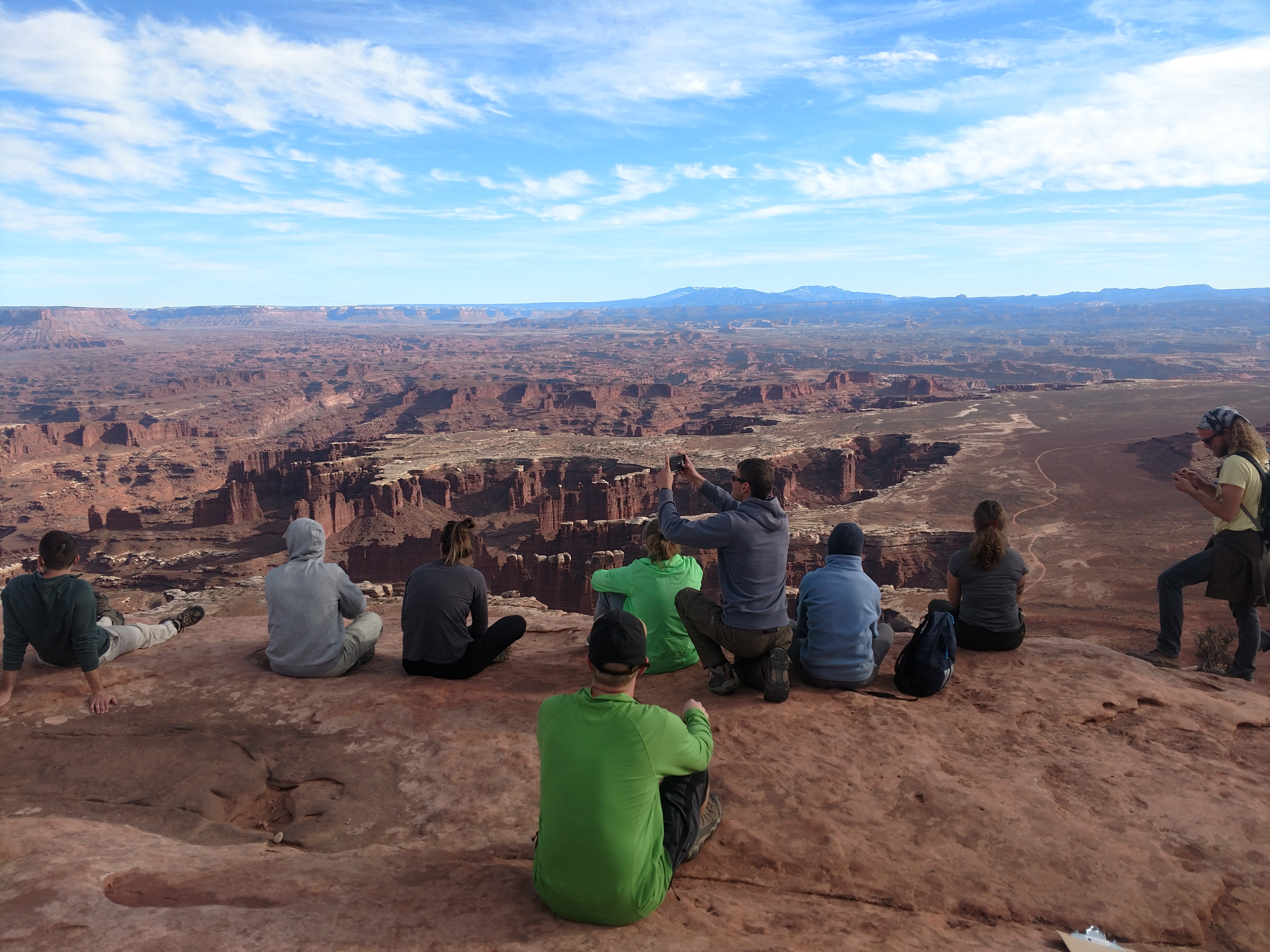
Students at grand view point in Canyonlands National Park - discussing fluvial and hillslope erosional processes
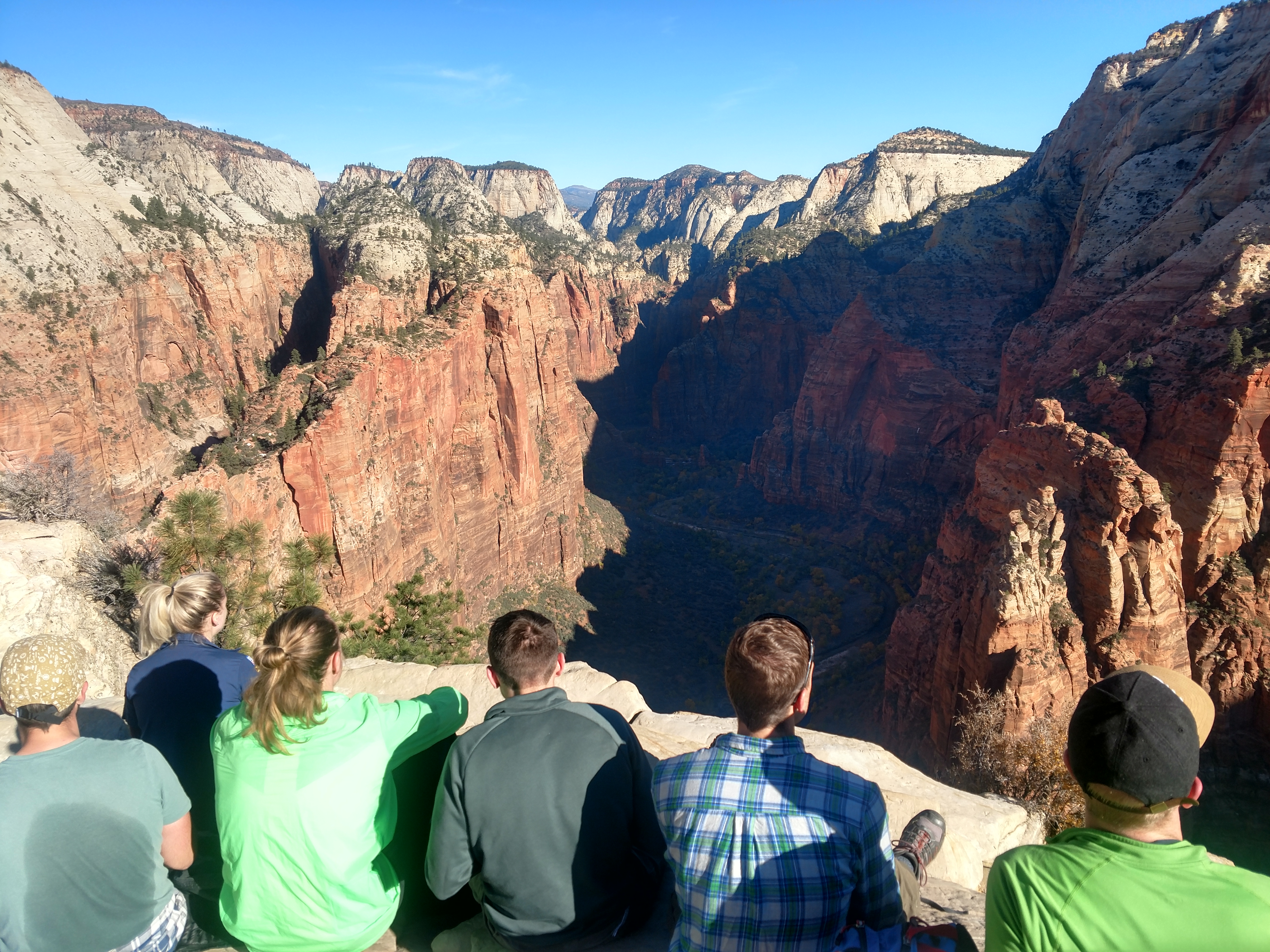
Students at Angels Landing in Zion National Park - discussing entrenched meanders, rockfall hazards, and valley evolution
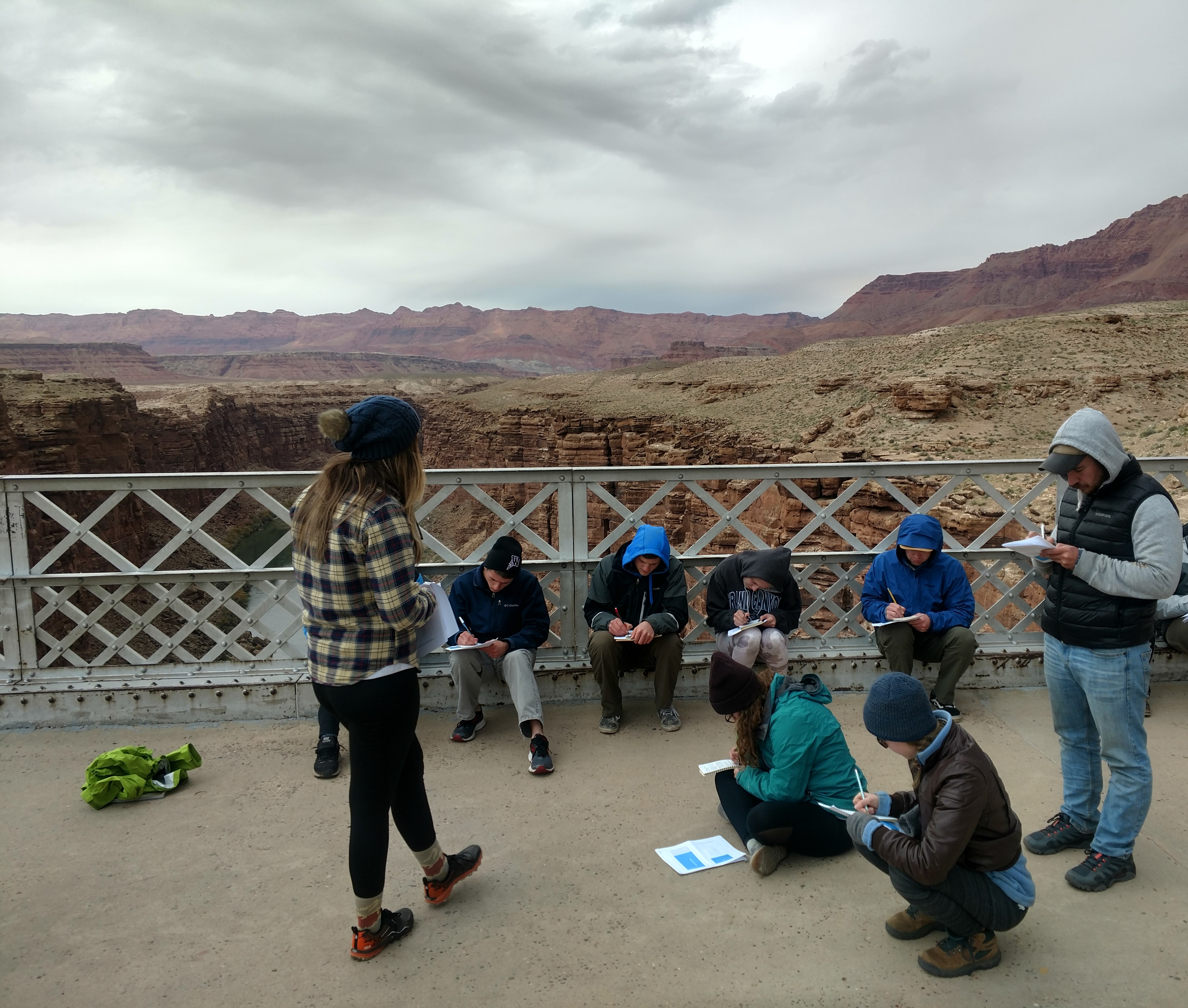
Students at Lee's Ferry, Arizona - discussing hillslope/cliff retreat and rockfall processes
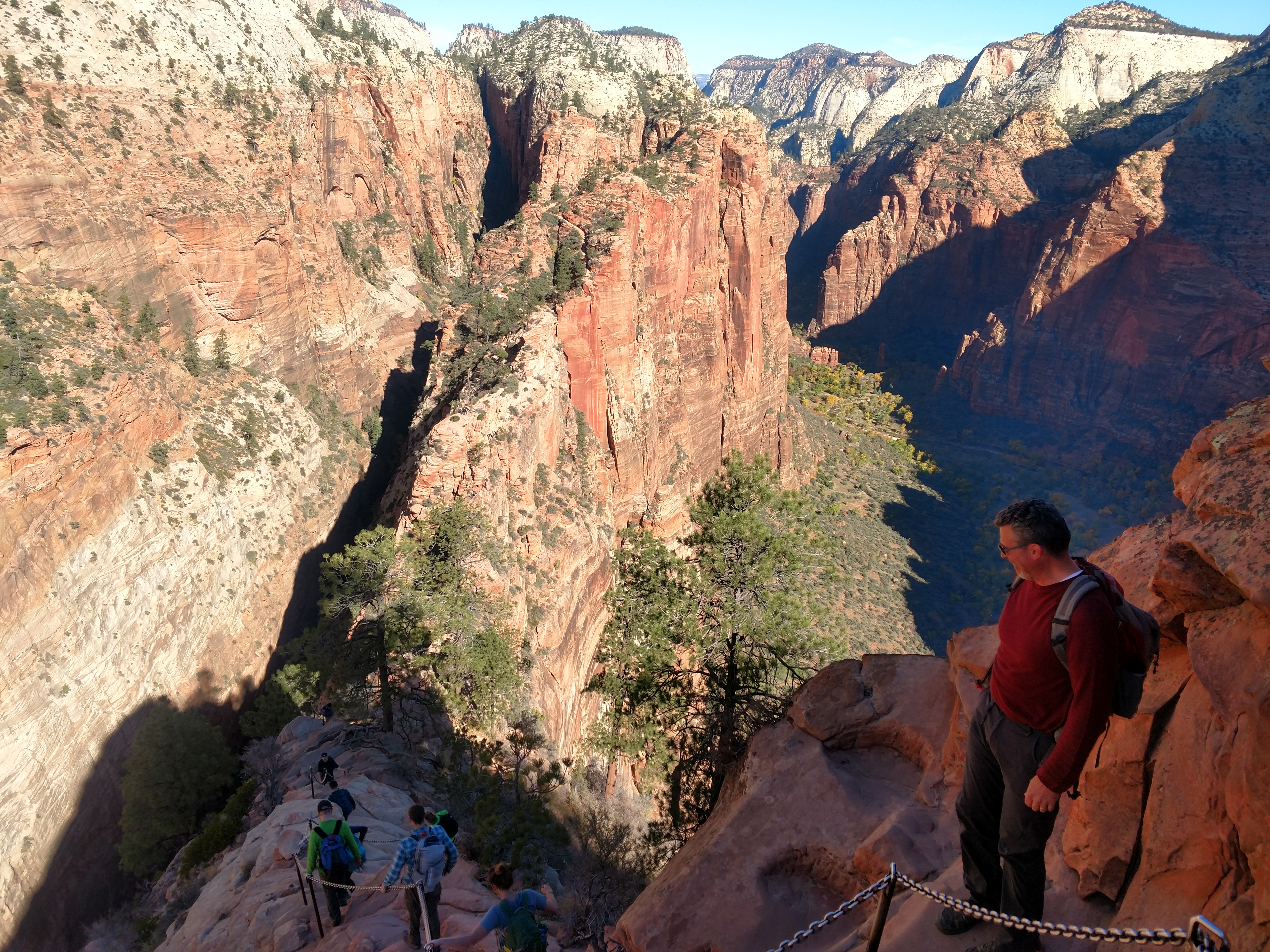
Students hiking back from Angel's Landing - Zion National Park, Utah
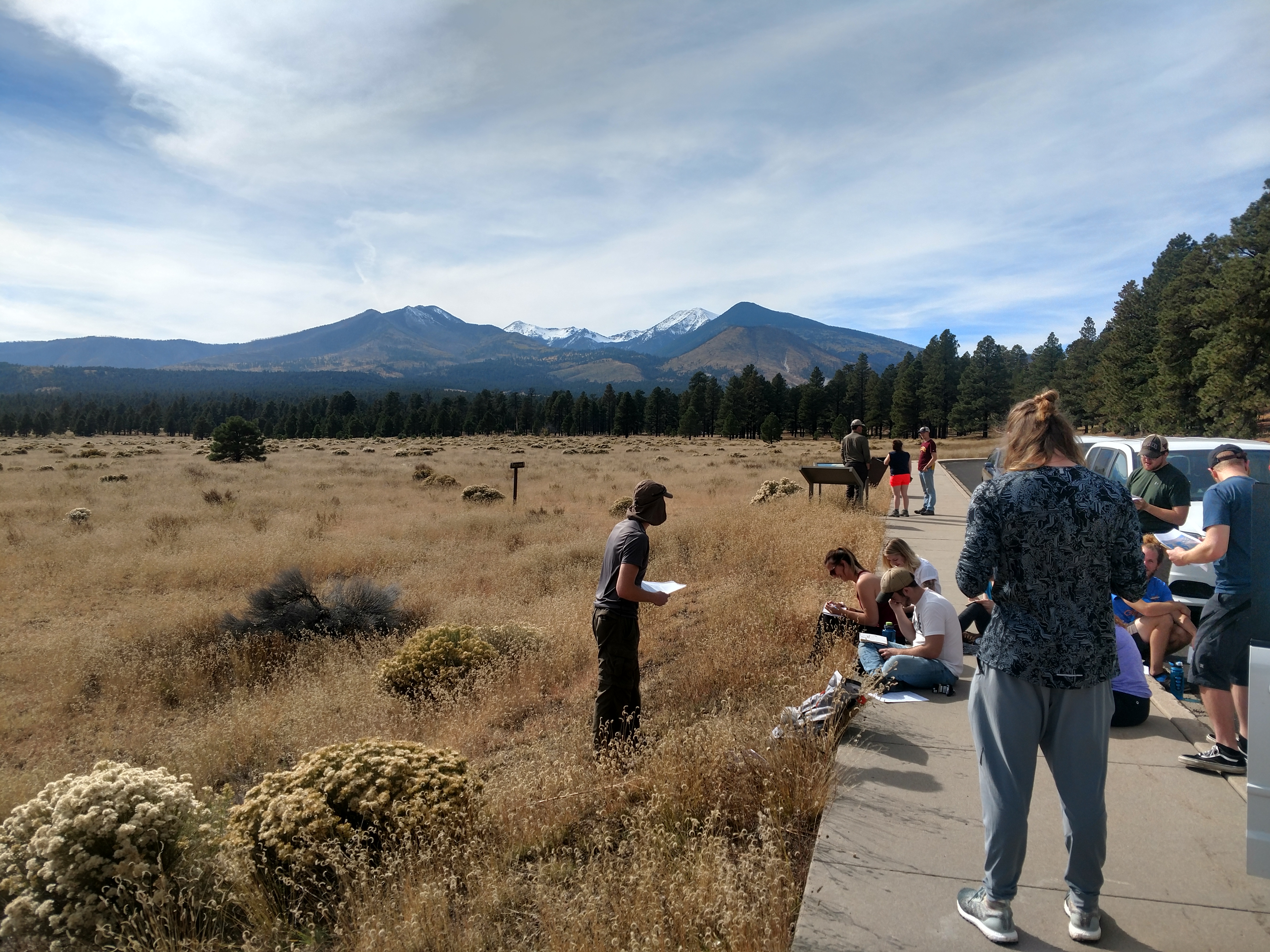
Students learning about volcanic hazards in Arizona - Sunset Crater National Monument, Arizona
____________________________________________________________________________________________________________________________________________________
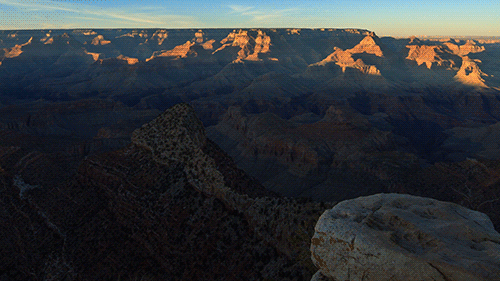
"You cannot see the Grand Canyon in one
view, as if it were a changeless spectacle from
which a curtain might be lifted, but to see it, you
have to toil from month to month through its
labyrinths." - J.W. Powell